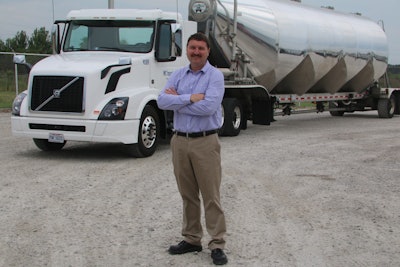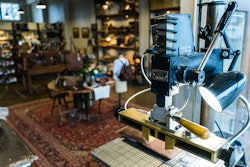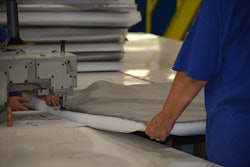
Flour milling is an American tradition that seems to have stood the test of time.
As one of the oldest flour mills in the country, The Mennel Milling Company, headquartered in Fostoria, Ohio, has seen a lot of change. But one thing has remained consistent—family ownership. D. Ford Mennel, CEO of the company, represents the fifth generation of the milling company, which was started in 1886. Today, Mennel operates six flour mills, 10 country grain elevators, two trucking companies, a bakery mix facility, a popcorn facility and several other service-centered businesses.
Its mills, located throughout Ohio, Michigan, Illinois and Virginia, produce hard, spring and soft wheat flours. All told, the company produces more than 200 different types of flour per day, with over 2,000 products in the Mennel Milling catalog.
Over the years, Mennel has continued to innovate and adapt to the changing industry and consumer preferences as demonstrated by their investment in research and development. One of their largest areas of focus has been on transportation. Internally, Mennel’s systems were very good at tracking costs of milling flour and production, but they didn’t have the same tool on the transportation side.
“We’re more than just one piece because you are looking at grain merchandising, you’re looking at production whether it be flour milling or the bakery mix products, there’s lots of different pieces. And one of the things we realized is we didn’t have as good of visibility on the financial breakdowns of running the trucking side (of our business),” explains Jeremy Decker, transportation safety manager at Mennel Milling.
“We identified that need, and said, ‘OK, we’ve got to put something in place that gives us better visibility so we can examine these lanes and do more of these traditional transportation cost models.”
Since implementing a BOLT system, Decker says Mennel has a better understanding of where its costs are. “It allows us to look at each lane as an individual entity and determine whether our pricing models are good, bad or just where they need to be,” he adds.
To handle deliveries, the company has a fleet of more than 70 tractors. Mennel typically grosses out at 80,000 pounds and deliveries are normally single shipments to one customer, like a bakery or mixing plant. “We primarily cover the eastern half of the U.S., and some of our trucks will make two to three runs per day,” says Decker. “We do have longer runs though, which will take the truck 500 or more miles outside one of our mills.”
Thus, routing at Mennel must be dynamic. “Some of our customers will know exactly what they need two to three weeks in advance, so those are easier to schedule,” says Decker. “But many others can change their needs daily. It makes it a challenge. We work with BOLT System for our fleet management program, and it helps us tremendously in routing and dispatch.”
In addition, Mennel has long used activity-based pay for its drivers—many of whom have been with the company for 30 or more years. BOLT was able to tailor their software to accommodate it.
“Dispatch and pay were like a jigsaw puzzle without a box top for guidance,” recalls Decker. “We had originally gone with the 800-pound gorilla in a fleet management program, but didn’t have success. It was expensive, offered platforms we didn’t need or use but still paid for—plus, it wasn’t flexible for our needs. BOLT System has been far less complex. It’s tailored for our needs, and it saves us time and money.”
The company pays its drivers in segments, with information easily plugged into the company’s electronic logging device (ELD). In addition, geo-fencing at mills and customer locations allows for faster input. Pay can be broken out per mile, on longer trips, for example, or it can have a flat load rate. Plus, loading can have a pay structure, which can include a self-load fee at the mill. What’s more, the time of day can come into play.
“If, for example, a delivery is made after midnight on a Friday, a multiplier can kick in to assign additional value,” says Decker. “There are a lot of moving parts with our structure, and BOLT eliminates extra paperwork and tracking on our end. And, our drivers like it too. They see everything, and pay is transparent. Plus, they save time every week, too; they no longer have to manually record all of their time.”
In addition to their investment with BOLT, Mennel Mining also consistently looks to improve their safety equipment.
The company was an early adopter of disc brakes and collision mitigation systems, as well as electronic logs, which Decker says they implemented in 2006, “way before anyone told us we had to.”
The transportation safety manager adds: “We’ve always been more on the leading edge of those safety technologies, not only for the protection of our assets but for the protection of our employees.”
Whatever the reason, Mennel remains an industry leader thanks to this commitment to quality products, service and employees. As the industry continues to fight consolidation at the top, the company’s recent expansion into bakery mix, popcorn and warehousing further differentiates them from the pack— even after 132 years of business.
Follow Amy Wunderlin on Twitter.




















